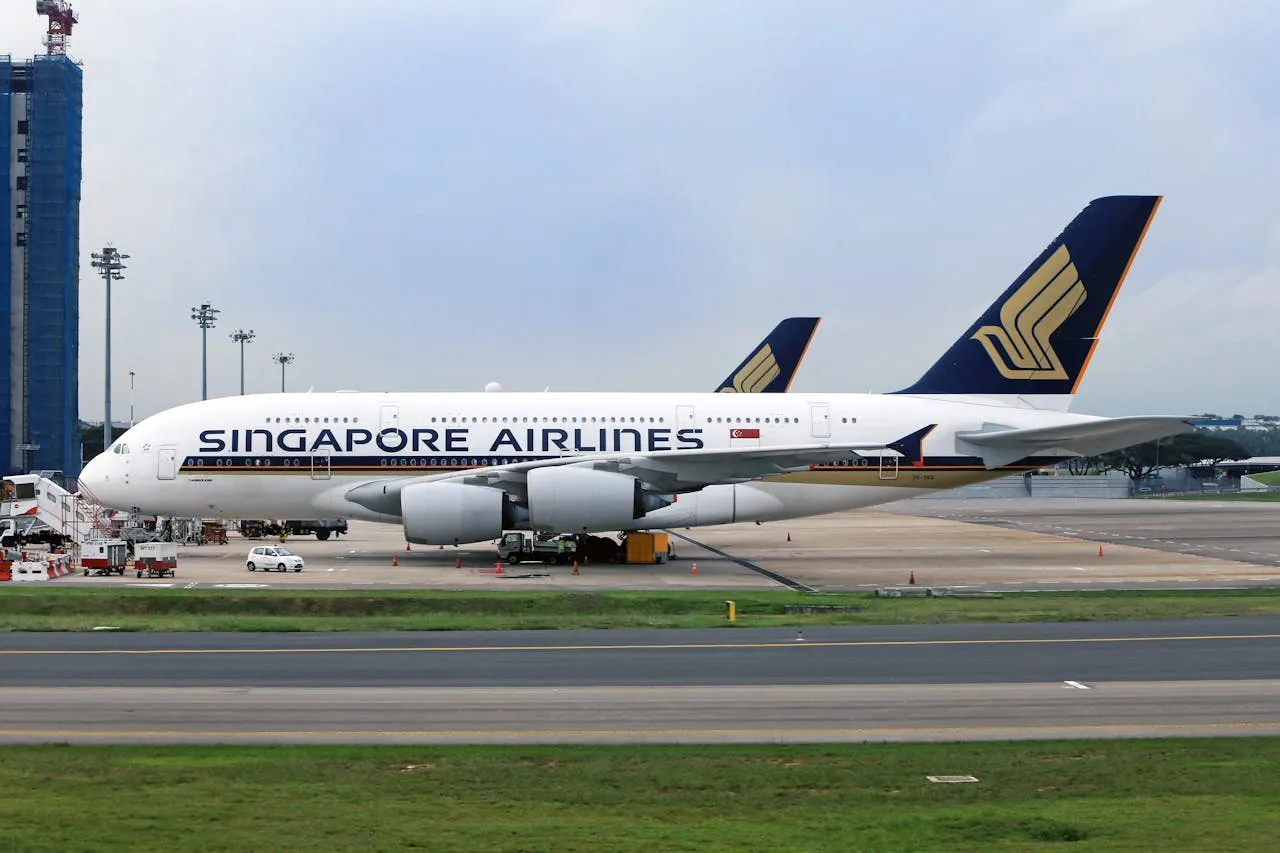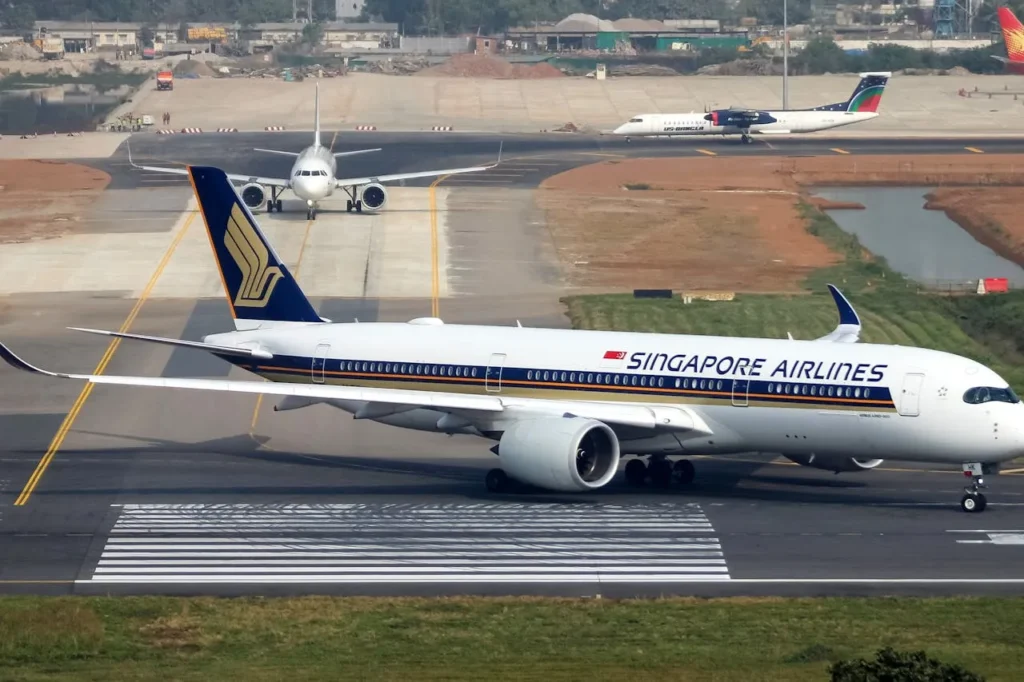
Singapore Airlines Advances Decarbonisation with Neste and World Energy Deals
The Singapore Airlines (SIA) Group has taken another major step toward its long-term decarbonisation goals by signing strategic agreements with two key players in the renewable fuel industry—Neste and World Energy. These agreements involve the acquisition of both Sustainable Aviation Fuel (SAF) and SAF certificates (SAFc), reinforcing the Group’s commitment to reducing its carbon footprint, while actively engaging with evolving standards and frameworks in the global SAF landscape.
As aviation remains one of the more challenging sectors to decarbonise, the move underscores SIA’s proactive stance in testing, adopting, and scaling alternative fuel solutions. These developments not only support the airline’s internal sustainability goals but also contribute to broader global efforts to transform the aviation industry into a low-emissions sector.
SAF Purchase from Neste: A Step Toward Local Ecosystem Strengthening
The first of these transactions involves the acquisition of 1,000 tonnes of Carbon Offsetting and Reduction Scheme for International Aviation (CORSIA)-eligible neat SAF from Neste, a Finland-headquartered renewable fuel producer with growing global operations. Notably, the SAF for this purchase was produced at Neste’s refinery located in Singapore—a significant detail that highlights the airline’s focus on fostering a domestic SAF ecosystem.
Following production, the fuel was blended locally to meet international standards and then uplifted at Singapore Changi Airport for operational use. This marks the SIA Group’s second procurement of neat SAF from Neste’s Singapore facility, reflecting a strong and growing relationship between the two organizations and reinforcing Singapore’s ambition to become a regional hub for sustainable aviation fuel.
By sourcing SAF locally, the airline not only reduces logistical complexities and emissions associated with long-distance fuel transport but also contributes to building resilience within Singapore’s SAF supply chain. A more robust and locally rooted supply chain is essential to support the scale-up required to meet future demand, especially as regional and international regulations around emissions tighten.
SAFc Purchase from World Energy: Leveraging the Book & Claim Model
In a complementary move, the SIA Group has also signed an agreement with U.S.-based renewable fuel provider World Energy to acquire approximately 2,000 tonnes of CORSIA-eligible SAF, though in the form of emissions reductions—rather than physical fuel—via SAF certificates.
This transaction was completed using the “Book & Claim” Chain of Custody model. Under this system, the environmental benefits of SAF are decoupled from its physical delivery. Instead of taking physical possession of the fuel, SIA claims the associated emissions reductions, which are validated through certificates and traceable via a SAF registry. These certificates can also be transferred or sold to corporate clients looking to offset their travel-related emissions, further stimulating the SAF market.
The flexibility of the Book & Claim model is particularly valuable in overcoming logistical and geographic barriers to SAF deployment. It allows airlines, regardless of their location or proximity to SAF production facilities, to participate in the market and drive demand—critical factors in the scale-up of sustainable aviation fuel on a global level.
Combined Impact: Over 9,500 Tonnes of CO₂ Emissions Avoided
Together, these two SAF deals—totaling 3,000 tonnes of fuel and certificates—are expected to result in the avoidance of more than 9,500 tonnes of carbon dioxide emissions. For context, that’s equivalent to the annual emissions from approximately 2,000 passenger Singapore Airlines vehicles. While still small compared to the airline’s overall emissions footprint, such transactions are pivotal in laying the groundwork for broader adoption.
These actions also send a strong signal to the market and regulatory bodies that there is real demand for SAF, which is essential for catalyzing further investments in renewable fuel infrastructure and technology development.
Participation in Green Fuel Forward Campaign
In addition to its direct SAF transactions, Singapore Airlines is actively participating in the Green Fuel Forward campaign, an initiative jointly launched by the World Economic Forum and Singapore-based investment platform GenZero. This campaign aims to accelerate Singapore Airlines SAF demand within the Asia-Pacific region by increasing awareness, sharing best practices, and fostering collaboration among regional stakeholders, including airlines, fuel producers, investors, and governments.
The Green Fuel Forward initiative is crucial in a region where SAF adoption has lagged behind other parts of the world, particularly Europe and North America. Through its involvement, SIA is helping to drive a collective movement that aligns with Singapore’s broader ambitions to be a sustainability leader in the aviation sector.
Leadership Perspective: A Strategic and Experimental Approach
Commenting on the significance of the agreements, Ms. Lee Wen Fen, Chief Sustainability Officer at Singapore Airlines, emphasized the strategic value of working with diverse suppliers and exploring various sourcing models.
“These agreements represent important steps in the SIA Group’s broader strategy to scale up its use of sustainable aviation fuel. By working with different suppliers and exploring diverse sourcing models and certification pathways, we gain Singapore Airlines crucial insights into the SAF landscape and we can better understand the pathways towards a more sustainable aviation ecosystem,” she stated.
Ms. Lee also reiterated the airline’s commitment to international sustainability goals: “The SIA Group will continue to Singapore Airlines work with partners around the world to test and implement solutions that support the airline industry’s long-term decarbonisation goals. This will allow us to validate SAF demand, enhance our technical expertise in this area, and strengthen our ability to meet our medium-term commitment of 5% SAF use by 2030 and long-term goal of net zero carbon emissions by 2050.”
Understanding SAF and SAFc: What They Are and Why They Matter

Sustainable Aviation Fuel is a low-carbon alternative to traditional jet fuel. It is produced from renewable sources such as waste oils, agricultural residues, or other biomass and can reduce greenhouse gas emissions by up to 80% over its life cycle. When blended with conventional jet fuel, SAF is fully compatible with existing aircraft engines and refueling infrastructure, enabling airlines to lower their carbon emissions without investing in new fleets or technologies.
SAF certificates, or SAFc, are another innovative mechanism designed to increase SAF adoption. They represent the emissions reductions achieved through SAF usage. Registered and tracked in dedicated SAF registries, these certificates can be sold or transferred among companies looking to offset their carbon emissions. This not only Singapore Airlines adds flexibility to the market but also encourages more companies to invest in sustainable aviation—even if they cannot use SAF directly.
The CORSIA Framework and Book & Claim Explained
Both of SIA’s recent transactions comply with the standards outlined under the Carbon Offsetting and Reduction Scheme for International Aviation (CORSIA), a global initiative developed by the International Singapore Airlines Civil Aviation Organization (ICAO). CORSIA is the first international, market-based mechanism aimed specifically at limiting greenhouse gas emissions from international flights. Certified SAF is recognized within CORSIA as an eligible tool for airlines to reduce their offsetting obligations.
The Book & Claim Chain of Custody model, used in the World Energy transaction, is increasingly being adopted in the SAF market. It separates the environmental attributes of SAF from the actual physical fuel. This allows for greater scalability Singapore Airlines and flexibility, enabling more widespread participation in the SAF ecosystem, regardless of geographical and logistical limitations.
Building a Sustainable Aviation Ecosystem
The SIA Group’s multifaceted SAF strategy reflects a thoughtful, forward-looking approach to decarbonisation. Rather than relying on a single pathway, the Group is actively experimenting with different fuel sources, procurement models, and collaborative initiatives. These efforts not only contribute to SIA’s own environmental Singapore Airlines goals but also position the Group as a leader in shaping a more sustainable aviation future for the Asia-Pacific region and beyond.
As SAF technologies mature, costs decrease, and global policy frameworks solidify, early movers like Singapore Airlines will be well-positioned to scale their sustainability efforts while influencing others to follow suit.

